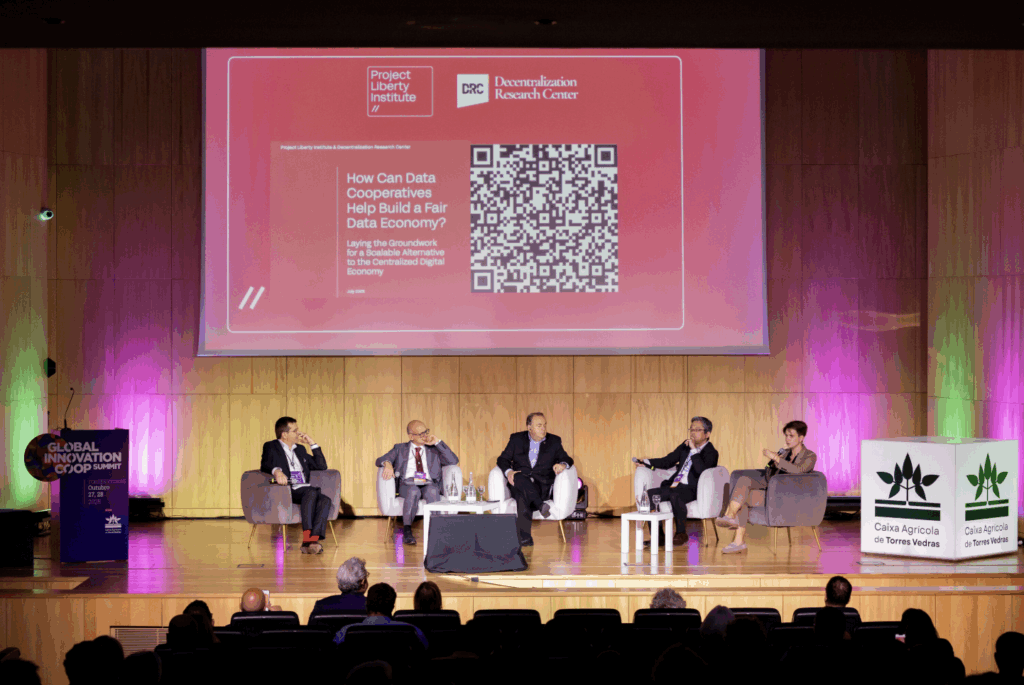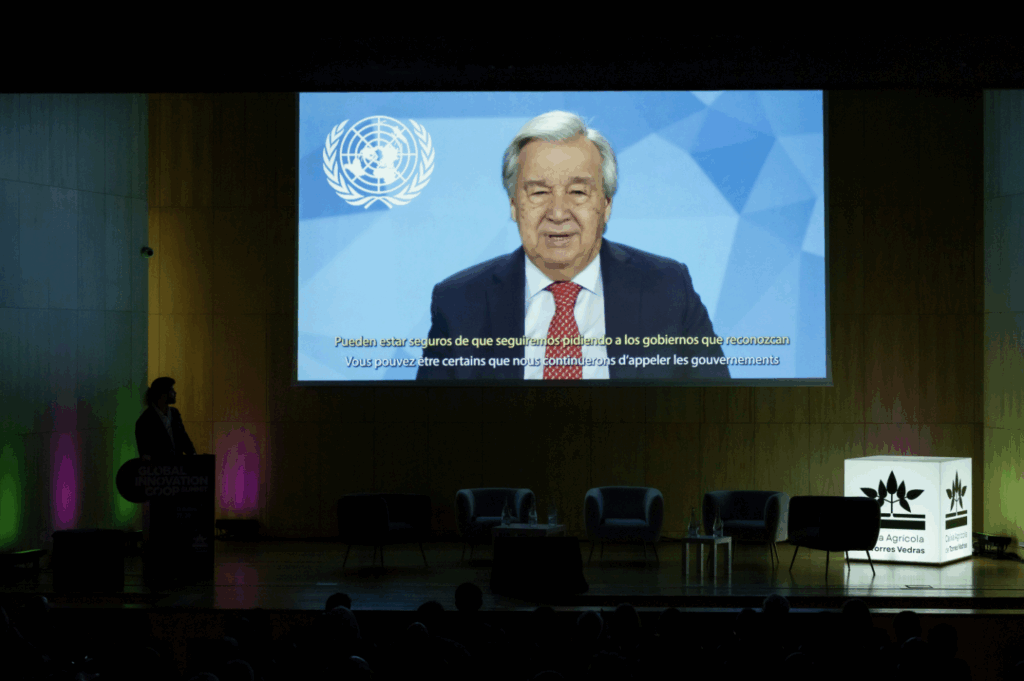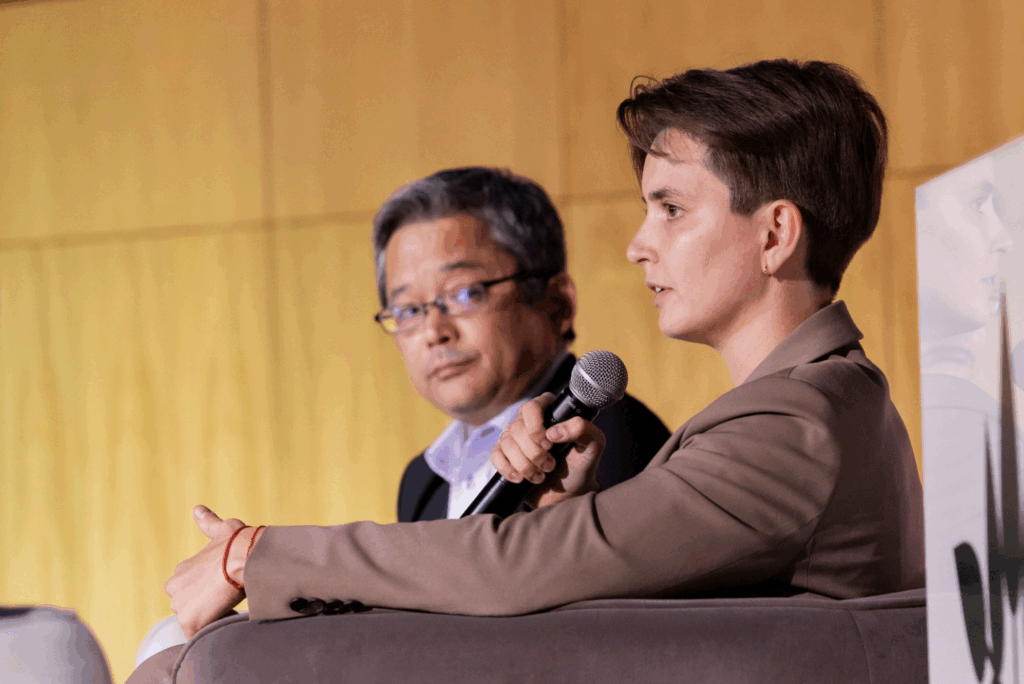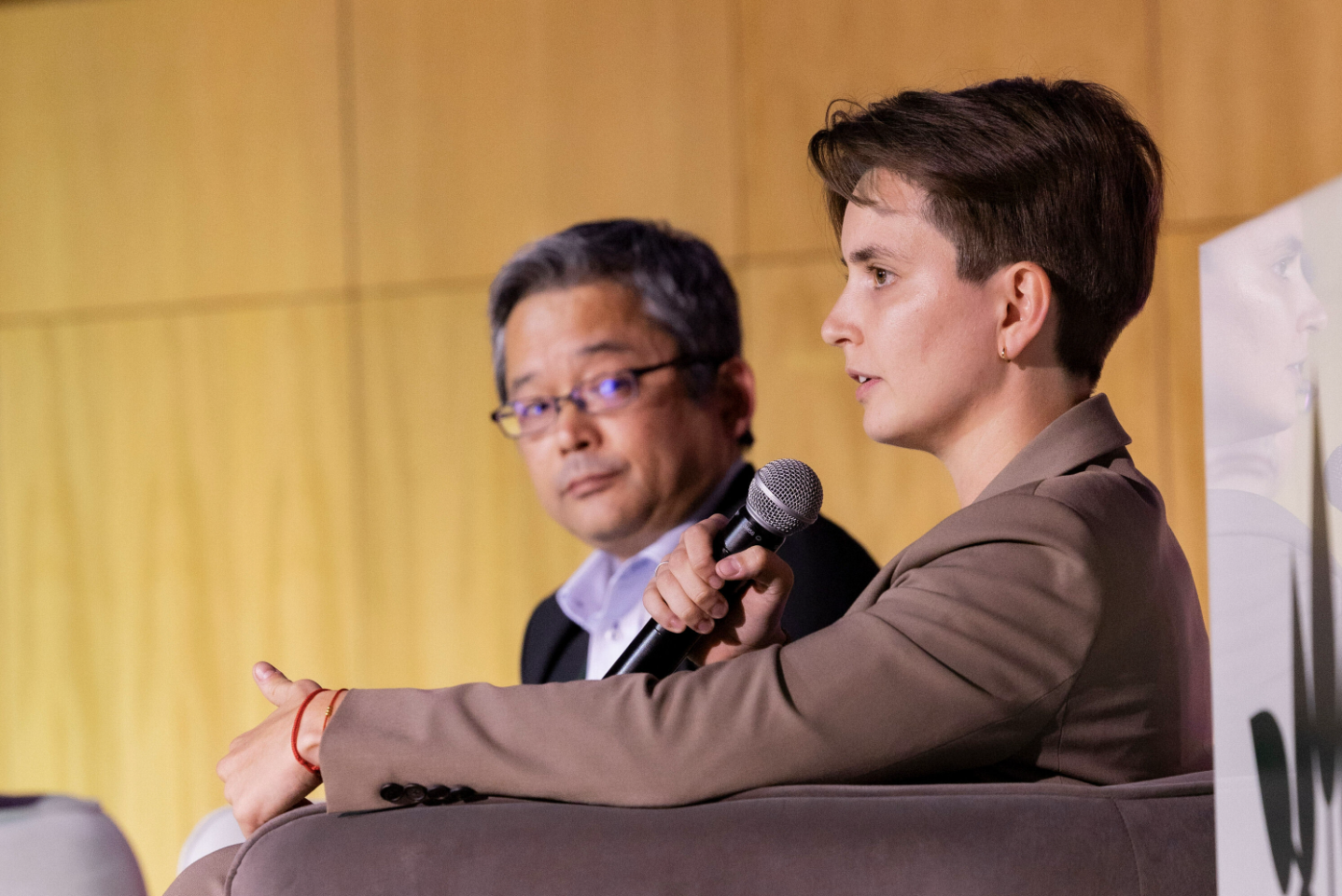
Pictured Olivier Clyti, Director of Strategy, CSR, Digital, InVivo, France, Giuseppe Guerini, President, Cooperatives Europe, Italy, J.Benoit Caron, General Director of the Consortium for Collective Enterprise Cooperation, Canada, Osamu Nakano, Vice Executive Director, Japan Workers’ Co-operative Union (JWCU), Japan
On October 27th and 28th, the Project Liberty Institute presented the findings from “How Can Data Cooperatives Help Build a Fair Data Economy? Laying the Groundwork for a Scalable Alternative to the Centralized Digital Economy,” at the Global Innovation Coop Summit.

Portugal’s Minister of Foreign Affairs, Paulo Rangel, opened the summit, followed by a greeting from the United Nations’ Secretary General, Antonio Guterres. Over the course of the two days, more than 300 global leaders gathered in Torres Vedras, Portugal, to take responsibility and collaborate on solving environmental, economic, and social challenges across borders. The topics discussed contributed to the United Nations’ annual theme, celebrating the International Year of Cooperatives.
Building Trust and Collaboration in the Age of the Digital Economy

Sarah Nicole, Project Liberty Institute’s Policy & Research Manager, joined a panel at the summit, which considered building trust in the age of the digital economy. Fellow panelists included co-op leaders from Japan, Canada, Italy, and France. The Project Liberty Institute and the Decentralization Research Center’s latest report, which considered the cooperative model as a structural match for the fair data economy, was the foundation for this discussion.
Cooperative principles, including democratic control, shared ownership, and member benefit, align closely with the nature of data and the need for more equitable data governance. Rather than scaling up single dominant platforms, cooperatives enable many smaller, community-anchored initiatives to scale out, responding to specific needs, contexts, and values.The panelists also discussed the needed policy support to scale the data cooperative model.
Following the panel, a workshop titled “Building a global cooperative network—harnessing collective knowledge in the age of AI,” featured discussants Suha Mohammed, Innovation Director at the Data Empowerment Clinic, Kings College, and Igor Calzada Mugica, Professor at the University of the Basque Country. The workshop was moderated by Samuel Vance-Law, Principal Researcher at the Decentralization Research Center.
Bridging the Gap Between Digital Literacy and Co-op Literacy
Project Liberty Institute’s report “How Can Data Cooperatives Help Build a Fair Data Economy? Laying the Groundwork for a Scalable Alternative to the Centralized Digital Economy,” co-written with the Decentralization Research Center, was welcomed by the cooperative community, receiving extremely positive and constructive feedback.Many cooperatives today possess a wealth of data, ranging from their members to the activity they are specialized in; agriculture, health, finance, etc., yet without sufficient digital literacy, their potential remains largely untapped.
Designed as a bridge between those with digital literacy and those with cooperative expertise, this report aims to bridge the gap between the very innovative start-up world and the legacy model of cooperatives, a timely and much-needed dialogue as the redistribution of value in the data economy demands systemic change.
